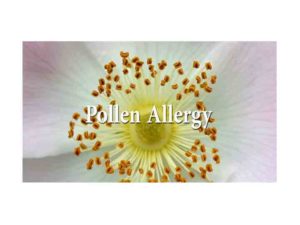Allergic rhinitis, hay fever, or seasonal allergy is an allergic response to specific allergens. Worldwide 10-30 % people are suffering from allergic rhinitis. Pollen is the most common allergen responsible for seasonal allergic rhinitis. Allergy is an immunologically mediated reaction to substances which are considered harmless to most of us. This harmless substances are call Allergen.
Causes of allergic rhinitis/hay fever?
Substances that causes AR includes-
- Tree pollen
- Grass pollen
- Dust mites
- Animal dander
- Cat saliva
- Mold
Tree and flower pollens are more common in the spring season. Grasses and weeds produce more pollen in the summer and fall.
Symptoms of allergic rhinitis/hay fever:
When an allergen enters into the body or comes in contact with the body, it reacts with the already formed antibody leading to activation of mast cell. As a result there is release of mast cell mediator including histamine, leukotrienes, and others. These chemical mediators are responsible for symptoms of allergy.
Common symptoms of allergic rhinitis/hay fever include:
- Sneezing
- Runny nose
- Itchy nose
- Stuffy nose
- Coughing
- Sore or scratchy throat
- Watery eyes
- Itchy eyes
- Dark circles under the eyes
- Frequent headaches
- Extremely dry, itchy skin that can blister and weep
- Hives
- Fatigue
Types of allergic rhinitis/hay fever:
There are two types of allergic rhinitis are seasonal and perennial.
Seasonal allergies occur only on a particular season eg during the spring and fall season and are typically in response to outdoor allergens like pollen.
In perennial allergies, symptoms of allergy are present throughout the year. House dust mites and animal dander are the important perennial allergen.
Diagnosis of allergic rhinitis/hay fever:
Diagnosis is based obtaining a clinical history. However, an allergist can order certain test to find out the cause of AR. Finding the causes of AR is important to formulate the management plan. Following tests are helpful:
-
Skin prick test:
SPT is one of the most common test to find out the cause of AR. It is very sensitive and cost-effective test and it is easy to perform.
2. A blood test, or radioallergosorbent test (RAST)/ Immunocap:
can measure the amount of immunoglobulin E antibodies to particular allergens in your blood.
Skin Prick Test:
- In skin prick testing, a small drop of the possible standardized antigen (allergen) is placed on your skin.
- Then the nurse or doctor will lightly prick the spot with a needle / sterile lancets through the drop. If you are allergic to the substance/allergen, you will develop redness, swelling, and itching at the test site of pricking within 15-20 minutes.
- There will be wheal and flare at the site of pricking. Usually, the larger the wheal, the more likely you are to be allergic to the allergen.
- A positive SPT to a particular allergen does not necessarily mean you have an allergy to the particular allergen.
- An SPT only indicates that the person is sensitized to that allergen. Clinical correlation is necessary. Health care providers must compare the skin test results with the time and place of your symptoms to see if they match or not.
Allergen specific IgE testing:
1. Blood testing for allergen-specific IgE is usually performed when the skin prick test is contraindicated. The test is also suitable in extreme of age i.e., an infant and elderly patients where skin prick test is not appropriate.
2. In this test, blood is drawn from the patient. Then sample sends to the laboratory for testing. The laboratory will add the particular allergen extracts to that blood. If the specific antibody is present in the blood then the antigen added to the blood sample will attach with the specific antibody. This test is called Specific IgE (sIgE) Blood Testing. As with skin testing, a positive specific IgE testing does not necessarily mean that an allergen caused your symptoms.
Treatments of allergic rhinitis :-
Medications
- Antihistamines: Most common medicine used in mild to moderate allergic reaction.
Antihistamines include:
- Fexofenadine
- Levocetirizine
- Cetirizine
- Diphenhydramine
- Desloratadine
- Loratadine
-
Decongestants:
Decongestant can be used to relieve a stuffy nose and sinus pressure. But decongestant can only be used for shorter time usually for three days. Longer time can cause a rebound effect, means once you stop the medicines your symptoms will actually get worse.
Decongestants include:
- Oxymetazoline
- Pseudoephedrine
- Phenylephrine
- Cetirizine with pseudoephedrine
One should be kept in mind that history of abnormal heart rhythm, heart disease, history of stroke, anxiety, a sleep disorder, high blood pressure, or bladder issues is important before commencing decongestant medication.
-
Eye drops and nasal sprays:
Eye drops and nasal sprays can help relieve itchiness and other allergy-related symptoms for a short time. However, depending on the product, you may need to avoid long-term use.
Like decongestants, overusing certain eye drops and nose drops can also cause a rebound effect.
-
Corticosteroids:
Corticosteroids can help with inflammation and immune responses. These do not cause a rebound effect. Steroid nasal sprays are suitable for long-term use. Nasal steroid medications are the most effective medications.
-
Immunotherapy:
Your doctor may recommend immunotherapy, or allergy shots if you have severe allergies. You can use this treatment plan in conjunction with medications to control your symptoms. These shots decrease your immune response to particular allergens over time. They do require a long-term commitment to a treatment plan.



